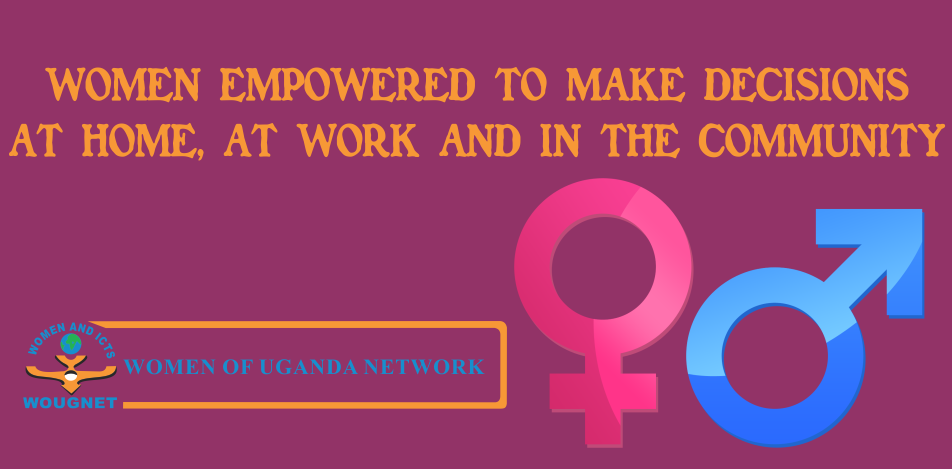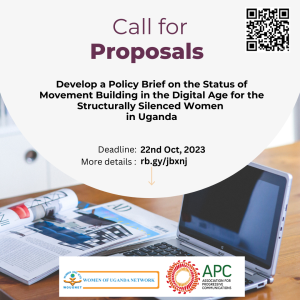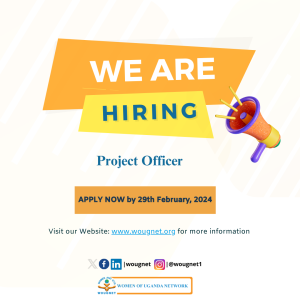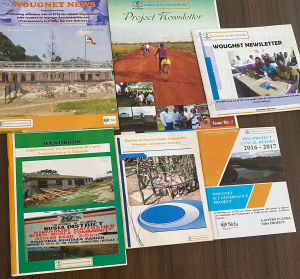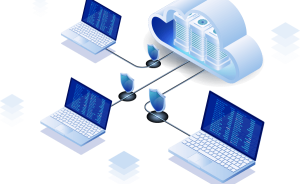Agency which implies “the ability to act” is key in women’s empowerment. Women cannot claim to be empowered if they lack the ability to act and cannot take a bigger step. Uganda’s strategy for wealth creation aims at creating economic empowerment for both genders, but how is it going to benefit women if they are not aware and self-conscious of their inner ability to accumulate wealth and sustain it?
Strong cultural and religious beliefs perpetuate inequalities in regard to women’s access, control and ownership of resources in all sectors of the economy. For instance in the case of land which is a very important asset; according to UN Women, Women farmers have significantly less access to, control over, and ownership of land and other productive assets compared to their male counterparts. The land is perhaps the most important economic asset; women account for only 12.8 percent of agricultural landholders in the world. This eventually affects women’s capacity to make economic decisions and perpetuates dependency syndrome. Women continue to face problems including lack of collateral which inhibits them from accessing credit, accessing markets and related facilities not forgetting limited decision making on issues concerning production and productivity. It is important that all stakeholders involved in advancing women’s empowerment consider gender roles and the effect of multiple roles that have to be respected.
Society has different perceptions towards empowerment; some think it is a remedy to make women suppress men while others think it is equipping women with essential necessities to sustain themselves. The misconception of the empowerment ideology breeds violence against women. In Uganda, Violence Against women and girls is economically motivated and usually related to women’s inability to provide for household basic necessities in line with their husband’s expectations. According to a study by Action aid Women and girls who are poor, are more reliant on men to support them financially. Having no money to leave, to find shelter, or to buy food is one of the critical reasons why women and girls stay in violent relationships. It also occurs due to men’s expenditure of scarce resources with the peak of violence in farming households during the harvest period. Regardless of women’s level of empowerment, Violence against women does not discriminate against class, age, education level, and economic status, the only different issue is how the different classes treat the situations and effects of violence.
It is key to note that many women are falling victim to the Learned helplessness theory where women due to factors like socialization learn to be inferior and endure abusive relationships making them helpless. This should not be the case!
In a current research on the Assessment of gender-responsiveness of RAN’s agricultural-focused innovations conducted by WOUGNET in Collaboration with Resilient Africa Network (RAN), the findings elaborated concern on the poor economic status of women which affects their decision making at household and community level and in turn affects their ownership and usage of the various agricultural innovations. This kind of research shades light on the challenges women face and create a stepping stone in building working solutions and recommendations in achieving women’s economic empowerment.
WOUGNET in her different projects aimed at attaining women’s social-economic empowerment, for example, the ERIGNU project encourages sharing of care roles between men and women at the household level. Women farmers now work together with their husbands and are assured of their support financially and morally. It has brought about harmony in homes and reduced domestic violence which has, in turn, promoted women’s social-economic empowerment and improved their livelihoods. Every November, WOUGNET participates in the Month of the Woman Entrepreneur (MoWE) and conducts a range of activities to engage women entrepreneurs. Last year on 23rd November 2018, WOUGNET organized a mini-training to show how ICT is a key enabler in improving women’s enterprises. The women present got an opportunity to network, share experiences in their economic struggles and learn how best to mitigate economic challenges. Through our various online and offline platforms, we continue to help women appreciate technology in enhancing their social and economic potential.
To achieve totality in women’s socio-economic empowerment, it is important that that women have agency and learn to be self-conscious of their business potential as a basis. The stakeholders especially Government and civil society Organizations should equip women with skills and find ways to overcome cultural and societal beliefs that are an obstacle to women’s empowerment.
Compiled by,
Patricia Nyasuna
Program Officer Gender & ICT Policy Advocacy

